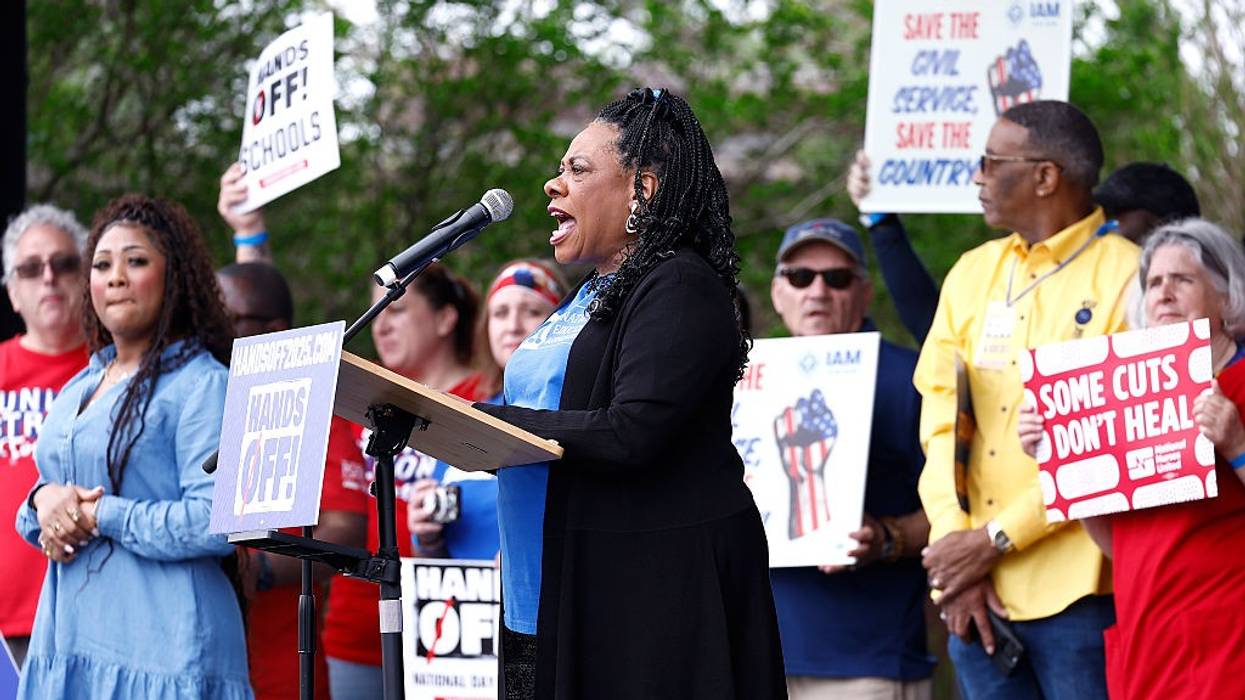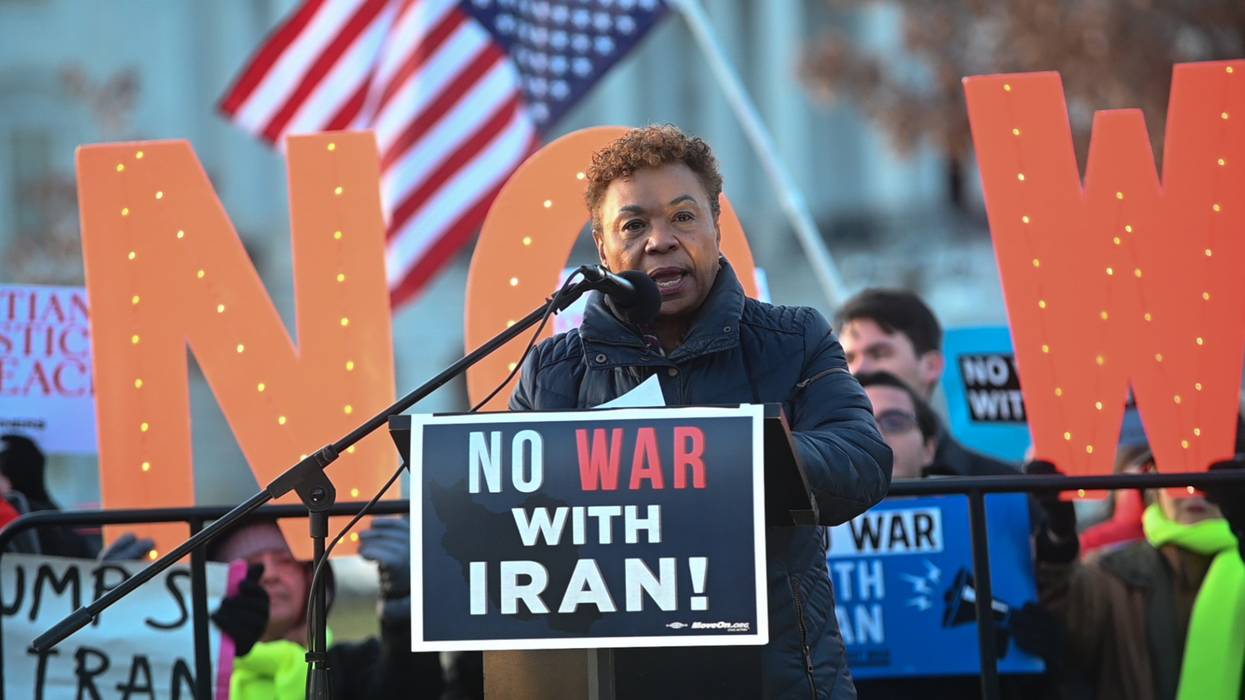'Congress Must Reject This Attack': GOP Bill Would Revoke Charter of Largest US Teachers Union
The president of the National Education Association said Republicans are attacking the union because "the billionaires that fund their campaigns don't want educators to have a voice."
A group of congressional Republicans introduced legislation Wednesday that would revoke the federal charter of the National Education Association, the largest teachers union in the United States and an organization that has mobilized against the Trump administration's far-right agenda—which includes an ongoing effort to dismantle the Department of Education.
The bill, titled the National Education Association Charter Repeal Act, was introduced in the U.S. House by Rep. Mark Harris (R-N.C.) and in the Senate by Sen. Marsha Blackburn (R-Tenn.).
The GOP lawmakers pointed specifically to the union's recent decision to cut ties with the Anti-Defamation League and the NEA representative assembly's adoption earlier this month of a pledge to "defend democracy against [President Donald] Trump's embrace of fascism."
Blackburn, a supporter of privatized charter schools who has endorsed Trump's effort to eliminate the Education Department, accused the NEA of embracing "radical left policies and antisemitism." Harris declared that "it's time to remove Congress' seal of approval from this rogue organization."
Becky Pringle, the union's president, hit back at Blackburn, Harris, and other supporters of the legislation, saying in a statement that "rather than supporting students and educators, some anti-public education politicians are now introducing legislation to repeal the National Education Association charter because the billionaires that fund their campaigns don't want educators to have a voice."
"Let me be clear—public school educators will never stop advocating for our students and communities, and the National Education Association will never stop lifting up the voice of those educators who dedicate their lives to the success of all of our students," said Pringle.
"Some in Congress want to destroy them because they don't like what the NEA says and does."
The NEA, which currently has around 3 million members across the U.S., was chartered by Congress in 1906 to "promote the cause of education in the United States" and "elevate the character and advance the interests of the profession of teaching." The organization was originally founded in 1857.
Republican lawmakers have been working for years to strip the NEA of its federal charter to express disapproval of the organization's support for progressive causes.
Education Week noted that the legislation introduced Wednesday "echoes the Heritage Foundation's conservative Project 2025 plan that has guided much of the Trump administration's education policy, and it could find more traction in the current GOP-controlled Congress."
The outlet observed that the the anti-union Freedom Foundation, which supports the GOP legislation, has called on Congress "to, among other things, bar the NEA from traditional labor union activities such as engaging in electoral politics, lobbying, or collecting dues, and require it to 'actively intervene to prevent any strikes or work stoppages by its affiliates.'"
"Revoking the NEA's charter would not, on its own, do any of those things," Education Week reported. "But Aaron Withe, chief executive officer of the Freedom Foundation, suggested that additional legislation would be introduced next week, 'whether that be removing [the NEA charter] entirely, or stripping it, or changing how it operates.'"
Maya Wiley, president and CEO of the Leadership Conference on Civil and Human Rights, said in a statement Wednesday that the NEA is "one of the most powerful voices for public education" and warned that "some in Congress want to destroy them because they don't like what the NEA says and does."
"This administration is trying to end the Department of Education and silence opposition, and it is attacking labor unions, law firms, news outlets, colleges and universities, philanthropy, and many of our members. We will not be silent," said Wiley. "Congress must reject this attack on the NEA and defend the constitutional principles that guarantee all Americans the right to organize, advocate, and petition government."


